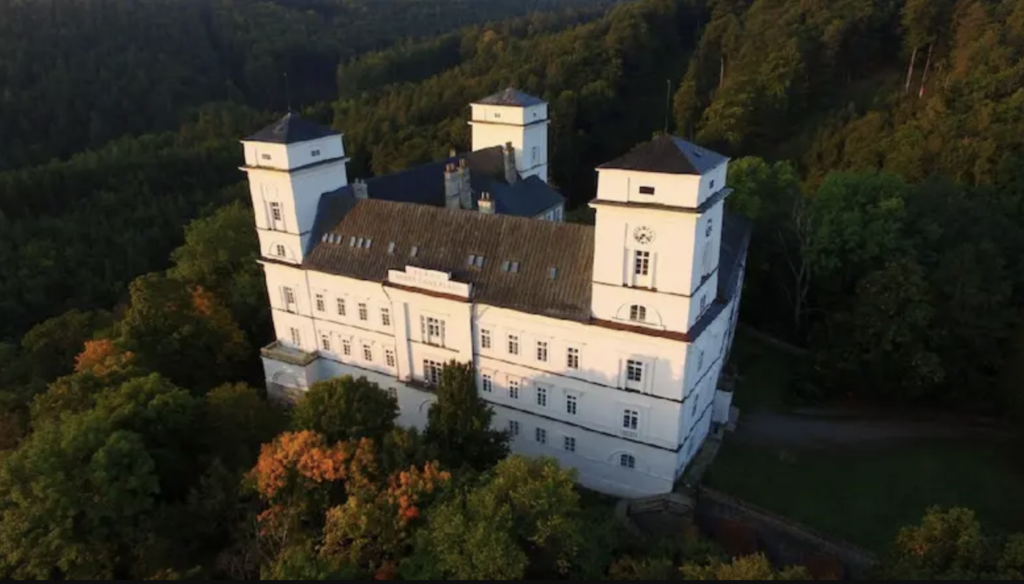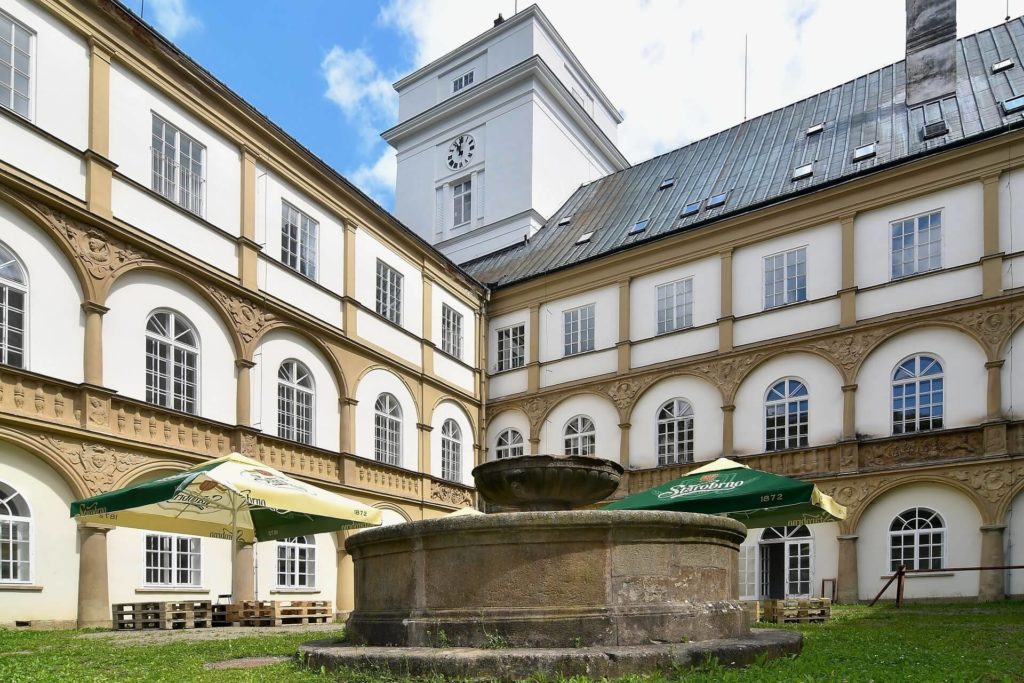Tourism generates 12% of Spain’s GDP and supports 2.6 million jobs. In Spain’s Balearic and Canary Islands, however, the dependence on tourism jumps to over 30% of their economies.
For the first time in history, lovers of castles and historic buildings can visit the Renaissance chateau in Račice (Vyškov region).
In 2017, the South Moravian Region sold the building to the company e-Finance, which rebuilt the chateau into a wellness hotel within five years for about CZK 150 million.
The complex, which dates to the 13th century, is a great starting point for cycling and hiking in Drahanská Highlands close to the Moravian Karst.
You can take a cycling path through the heart of South Moravia, visit the unique natural area of Velká dohoda or a nature park with the educational trail through Rakovec valley.
The first written mention about the Račice castle is from 1312 when Jan Lucemburský had it besieged. In the 14th century, it was renewed and belonged to the lords of Lipá.
In 1376 it became a part of the Šternberk property and later was given to the lords of Kravaře. In the end, it became the property of Hanuš Haugvic of Biskupice, who changed it into a renaissance chateau.
The town of Račice is located north-east of the town of Roudnice nad Labem on the left shore of Labe River. It is located 158 m above sea level. Until the end of 80’, Račice was the part of the town of Štětí.
Račice was established in 1295 by King Vaclav II.



Spain was plunged into the so-called “new normality” on Sunday, after nearly 100 days under a state of alarm due to the coronavirus crisis. passengers on a hundred or so flights landed in Spain from Schengen-area countries, with a total of 225 routes restarting – a low number compared to a normal month of June.
Spain’s Minister of Health Salvador Illa said tourists will first have to fill in a form stating exactly where they will be staying for the duration of their trip and whether or not they have previously had coronavirus. Then they will also have their temperature taken at the airport and undergo a visual inspection. Illa said that if the passenger fails one of the three checks, they will be seen by a doctor.
“We want to make sure that we welcome visitors, but we want to do this in safety and security for them, as well as for the Spaniards,” says Spanish Foreign Minister Arancha Gonzalez Laya.
Spanish officials are identifying locations where travelers “will be isolated and treated” should they require hospital treatment, according to González Laya.
Looking for a job in Prague? Visit our new job section!
Masks are required in all indoor public areas at hotels. Guests get their temperatures taken before the enter hotels restaurants.
Gloves are mandatory each time a guest requests food from a buffet, where a worker serves them. Arrows have been put on the floor to map out one-way routes for guests to keep people from crossing paths as much as possible.
Government health workers make random calls to check on the tourists. If a guest has symptoms of the covid-19 virus — a cough or a fever — authorities say they will get them tested within 24 hours. Those with positive results will be isolated in apartments the government has rented for the summer season. A team of contact tracers, which has been bolstered by 150 new hires, will seek out any people who could have been infected.
Tourism generates 12% of Spain’s GDP and supports 2.6 million jobs. In Spain’s Balearic and Canary Islands, however, the dependence on tourism jumps to over 30% of their economies.
Slovenia has opened its borders to citizens of 14 states, including the Czech Republic, who can now travel to and from Slovenia without any coronavirus restrictions, the government said on its website on Monday.
The other countries are Greece, Bulgaria, Cyprus, Germany, Switzerland, Estonia, Latvia, Lithuania, Finland, Iceland, Norway, Slovakia and Liechtenstein.
The government also introduced an obligatory 14-day quarantine for everyone coming to Slovenia from North Macedonia, excluding diplomats, transport workers, and those passing through Slovenia without an overnight stay.
The move follows a surge in coronavirus cases in North Macedonia over recent days.
Slovenia, which in May became the first European state to declare an end to its coronavirus epidemic, has over the past few weeks opened its borders to citizens of neighbouring countries Croatia, Hungary, and Austria.
Slovenia has so far reported 1,485 coronavirus cases and 109 deaths. It introduced a general lockdown in the middle of March and has been gradually lifting it since April 20.
